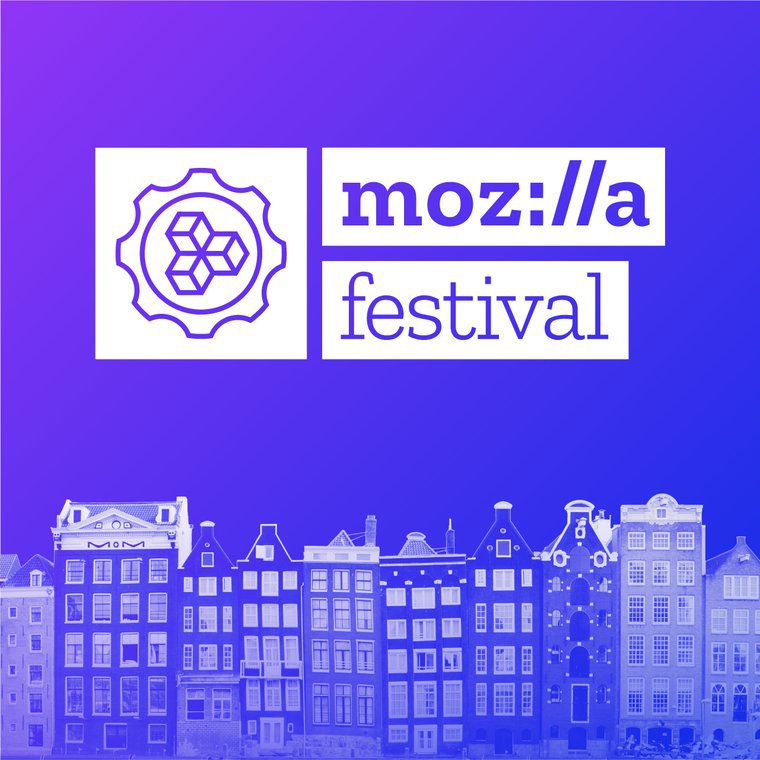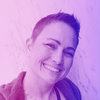This is a guest post authored by MozFest Wrangler Leena Haque.
Growing up neurodivergent, I either wanted to be a superhero or be rescued by one.
I have ADHD... I can't sit still, so I'm always moving and thinking about lots of things. However, I like to think these traits work well for me as a User Experience (UX) designer, as I'm always coming up with creative ideas and side projects to keep me busy and fuel my passion for positive neurodiverse environments.
Your Chance To Shape MozFest 2024
We are looking for passionate individuals to help design our next MozFest House event. This is your opportunity to share your ideas and make a real impact.
I’m a Senior User Experience designer at the BBC, currently involved in researching new design methodologies and content ideation as part of a programme which aims to understand and learn from the advances in Neuroscience with the intention of applying this in UX design, we call this Cognitive Design.
Alongside the advances in artificial intelligence (AI), I think it’s important to understand and explain how we think; to uncover the secrets of the unconscious workings of our brains that influence and interact with our conscious mind.
If we can better understand why people do things, their behaviours and influences at a cognitive level we could improve the results we achieve from UX research and ultimately provide more intuitive experiences for users.
It’s exciting work that also ties in with my passion of neurodiversity and allows me to stretch my creative imagination. I also co-lead the BBC’s Neurodiversity Initiative – CAPE (Creating A Positive Environment) with my Obi Wan Sean Gilroy. I named it CAPE because I’m a huge comic book fan and love superheroes.
My MozFest Story

My fellow BBC colleague and friend, Ian Forrester, who also happens to be a veteran Wrangler, introduced me to MozFest and invited me to facilitate a session on Neurodiversity. We both care about Neurodiversity and thought MozFest would be the perfect platform to highlight the subject matter and introduce a whole new perspective to the festival.
We were looking for people to try out a new learning experience we had been developing, which was still quite raw at the time. The experimental vibe of the festival offered an ideal environment for us to prototype something and run a session with people who were willing to have a go with something new, who were curious and open to new ideas was exactly what we were hoping for.
The welcoming nature of the festival meant I was much more comfortable and felt empowered to bring my whole self to the sessions. The sessions I’ve run have been a little out there sometimes, but people are always willing to come and try something different.
After facilitating a few sessions over three festivals, I took the plunge and wrangled a brand new space focusing on Neurodiversity in 2019. That was an entire Space I felt I could invest my whole identity in and find like-minded facilitators from around the world to help us build experiences that would illuminate this often hidden world of Neurodiversity.
Part of the Neurodiversity Space included an installation that invited people to share their ideas and concepts of identity, by adding images, items and anything else they wanted, to create a huge collage that stood at the entrance to the Space.
I wanted something that would allow others, like me, to openly express themselves when they may not have been able to in the past - to feel empowered.Over the festival, I watched the collage grow into an expression of identity and difference just as I had hoped it would.

Advice for First Time MozFest-ers
First of all, I would encourage people to find confidence from their passion for the work and the pursuit of whatever goal or ambition they have. Passion can drive belief and when you have these they will help you to build resilience and persistence, both of which are crucial to ensuring your work can shine through.
Look out, also, for different people with similar passion and maybe complementary skills-sets. Collaboration can help you to achieve greater things and benefit from diversity of thought, to help you overcome obstacles or identify improvements to ideas.
The brilliant thing about Mozfest is that it can provide you with a community of people who exhibit all of these tendencies. It becomes a festival experience from which you can explore, learn and grow.

About the Author
Leena Haque is currently a Senior UX Designer at BBC and co-founder for BBC Cape (Creating A Positive Environment) the BBC’s multi-award winning neurodiversity initiative which advocates innovative design solutions that understand, appreciate and accommodate our Neurodiversity. Leena also happens to be neurodivergent and is passionate about inclusion, raising awareness for Neurodiversity, intersectionality and promoting different thinking styles. She has developed diversity training workshops, produced creative short films including a 360 Virtual Reality film and she has written various blogs for different online publications. Her goal is to remove barriers and inspire the young, talented creatives of tomorrow so they can fulfill their aspirations regardless of disability or impairment. She has facilitated sessions for 3 years and was a first time Wrangler in Mozfest 2019.
MozFest is part art, tech and society convening, part maker festival, and the premiere gathering for activists in diverse global movements fighting for a more humane digital world. To learn more, visit www.mozillafestival.org.
Sign up for the MozFest newsletter here to stay up to date on the latest festival and internet health movement news.





